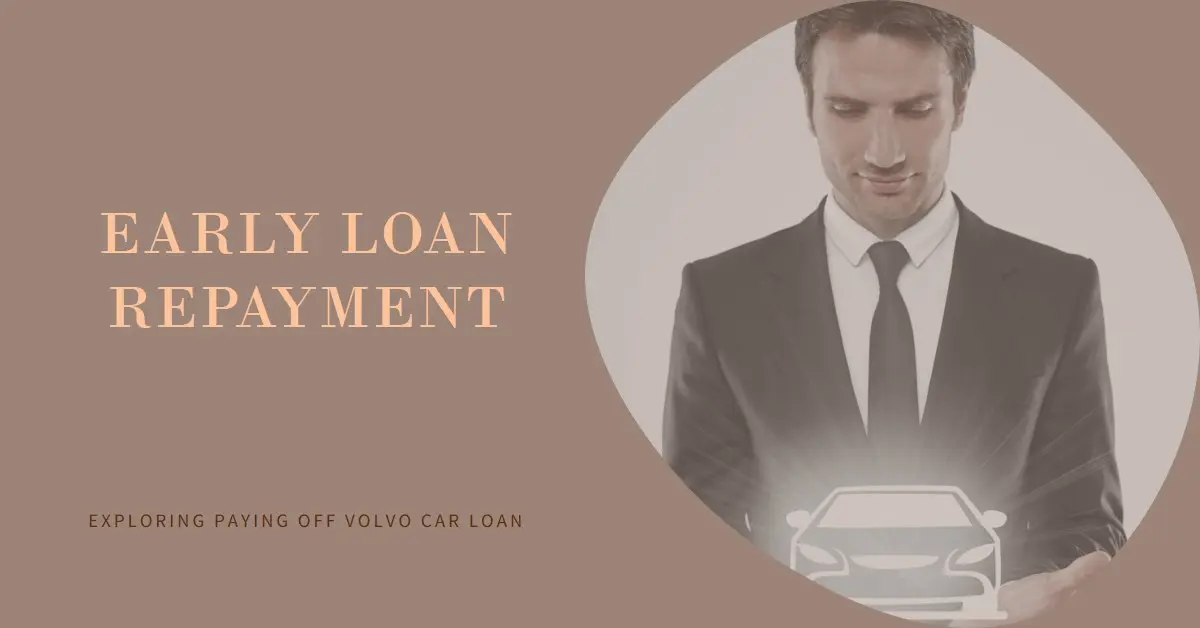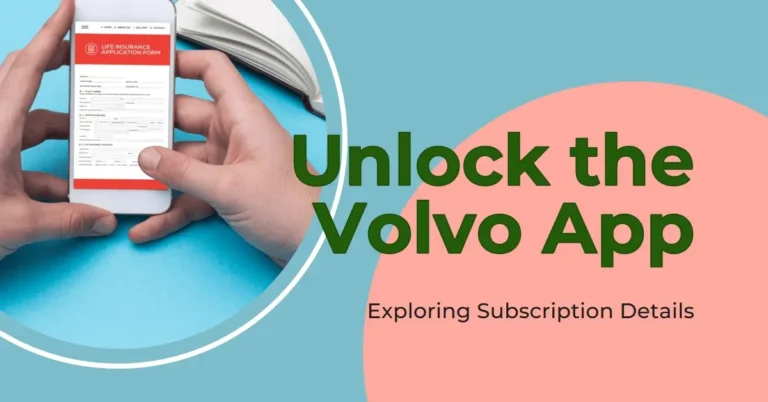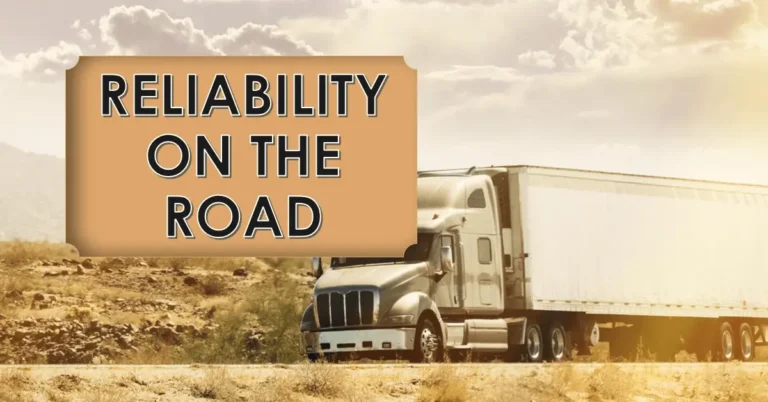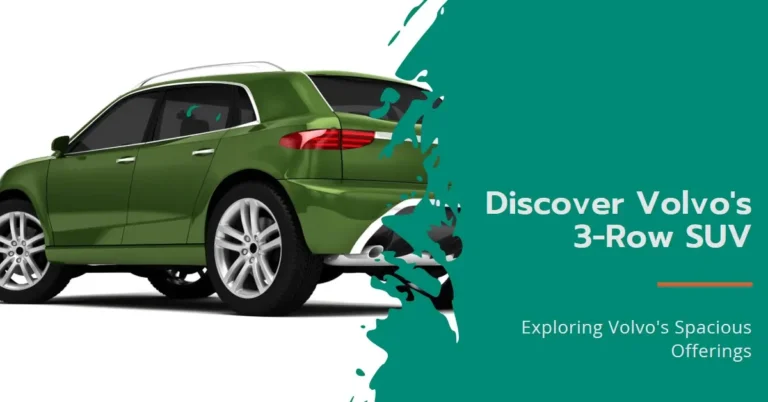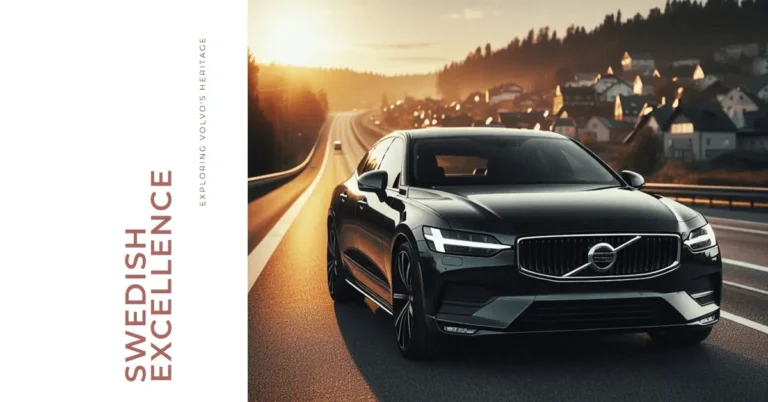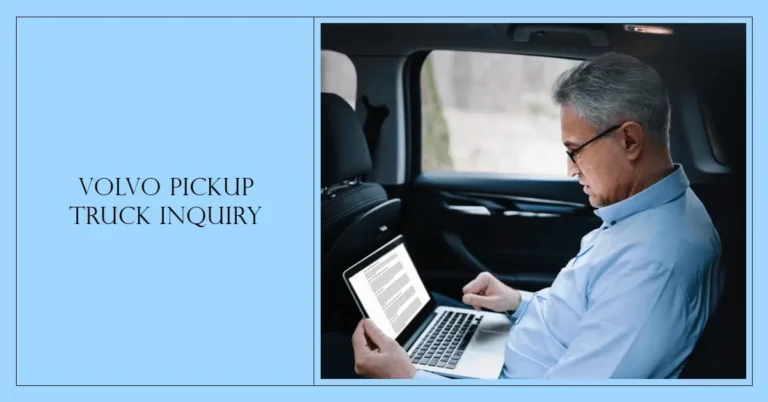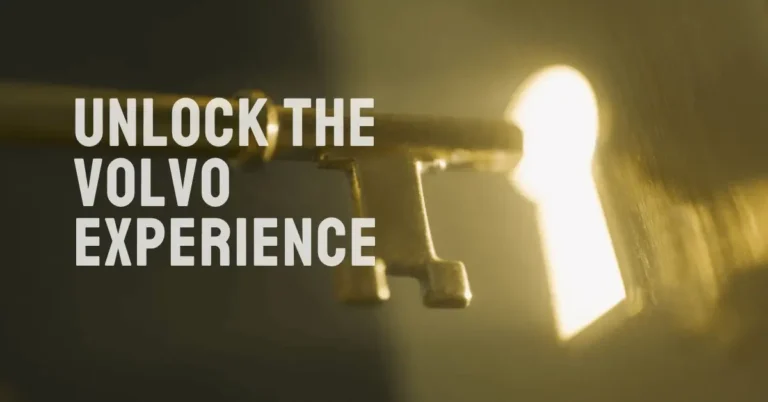Can I Pay Off My Volvo Car Loan Early?
Picture this: You’re cruising down the highway in your sleek Volvo, feeling like a million bucks. But your mind has a nagging thought – that pesky car loan. You start wondering, “Can I just pay this thing off and be done with it?” Well, buckle up because we’re about to dive deep into the world of early car loan payoffs. Can I Pay Off My Volvo Car Loan Early?
The short answer is yes, you can pay off your Volvo car loan early. It might even save you some serious cash in the long run. But hold your horses – there’s more to this story than meets the eye. Let’s break it down piece by piece so you can figure out if paying off your loan early is the right move for you.
Understanding the Basics of Paying Off a Car Loan Early
What Does It Mean to Pay Off a Car Loan Early?
Okay, what exactly are we talking about when we say “paying off a car loan early”? It’s pretty simple. Instead of sticking to the payment schedule you agreed to when you bought your Volvo, you pay more than the minimum amount each month or make a big lump sum payment to wipe out the loan before the end date.
Think of it like finishing a race before the clock runs out. You’re still running the same distance but picking up the pace to get there faster. This can mean making bigger monthly payments or dropping a chunk of cash to knock out the loan in one go. Either way, you aim to get that “paid in full” stamp sooner rather than later.
How Do Auto Loans Typically Work?
Before we go any further, let’s take a quick pit stop to understand how car loans usually work. When you finance a car, you borrow money from a lender to buy your vehicle. You agree to pay back that money and interest over a set period – usually 3 to 7 years for most folks.
Now, here’s where it gets a bit tricky. There are two main types of car loans: simple interest and precomputed interest. Simple-interest loans are like a pay-as-you-go system. The interest is calculated based on your current balance, so if you pay extra, you’ll owe less interest in the long run. Precomputed interest loans, on the other hand, are more like a package deal. The total interest is calculated upfront and split across all your payments.
Imagine you’re at an all-you-can-eat buffet. With a simple-interest loan, you only pay for what you eat. But with a precomputed-interest loan, you’re paying for the whole buffet whether you eat a little or a lot. That’s why knowing your loan type is super important when considering an early payoff.
Advantages of Paying Off Your Volvo Car Loan Early
Save Money on Interest
Let’s talk about the elephant in the room – saving money. Paying off your Volvo loan early can put some serious cash back in your pocket. How? By cutting down on the interest, you’ll pay over the life of the loan.
Here’s a real-world example to wrap your head around. You borrowed $30,000 for your Volvo at 5% interest over 5 years. If you stick to the regular payment schedule, you’ll end up paying about $4,000 in interest over the life of the loan. But if you pay it off just one year early, you could save around $800 in interest. That’s a nice change for a weekend getaway or some sweet upgrades for your ride!
Improve Your Debt-to-Income Ratio
Now, let’s talk about something that might sound boring but is pretty important – your debt-to-income ratio. This is fancy finance-speak for how much debt you have compared to how much money you make. Why should you care? Well, this ratio is like your financial report card. The better it looks, the easier it’ll be to get approved for future loans or credit cards.
Paying off your Volvo loan early can boost your debt-to-income ratio. It’s like cleaning up your room before your parents check – everything looks better. With a lower ratio, you might find getting approved for a mortgage easier or even snag a better interest rate on your next loan. Plus, having one less bill to worry about each month feels good.
Achieving Financial Freedom Faster
Let’s be real – debt can feel like a ball and chain sometimes. Every monthly payment is a reminder that you owe someone money. But here’s the good news: paying off your Volvo loan early can help you break free from that chain much faster.
Imagine waking up one day and realizing you don’t owe a dime on your car. How awesome would that feel? You’d have more money to save, invest, or spend on things you want (maybe some cool accessories for your Volvo?). It’s like getting a raise without having to beg your boss. Plus, there’s something satisfying about knowing you own your car outright. It’s yours, all yours!
Avoid Being Upside Down on Your Loan
A term that might make you scratch your head: being “upside down” on your loan. No, it doesn’t mean you must do a handstand to make your payments. It means owing more on your car than it’s worth. This can happen because cars lose value quickly (sorry to break it to you, but that new car smell doesn’t last forever).
Paying off your loan early can help you avoid this topsy-turvy situation. Reducing your loan balance faster than your car depreciates makes you more likely to stay “right-side up.” This is especially important if you want to sell or trade-in your Volvo before the loan ends. Nobody wants to be in a position where they owe more than they can get for their car. It’s like trying to sell a melting ice cream cone – messy and unprofitable.
Disadvantages and Considerations of Paying Off Early
Potential Negative Impact on Credit Score
You might think that paying off your loan early would make your credit score shoot through the roof. But hold onto your hats because it’s not always that simple. Paying off your car loan early might cause a temporary dip in your credit score. I know it sounds crazy, right?
Here’s the deal: your credit score is like a delicate recipe, and one of the ingredients is your “credit mix.” This is just a fancy way of saying that lenders like to see that you can handle different types of credit – like credit cards, mortgages, and car loans. You remove one ingredient from that recipe when you pay off your car loan. It’s like taking the salt from your grandma’s famous cookies – they might still taste good, but something’s off.
But don’t panic! This dip is usually small and temporary. Your credit score will likely bounce back quickly, especially if you keep making on-time payments on your other debts. Plus, the long-term benefits of being debt-free often outweigh this short-term blip.
Prepayment Penalties: What You Need to Know
Alright, it’s time to talk about something that might damper your early payoff plans – prepayment penalties. Some lenders are like clingy exes; they don’t want to let you go early without making you pay for it. A prepayment penalty is a fee some lenders charge if you pay off your loan before the agreed-upon term.
Before you start grumbling about unfair practices, there’s some good news. Many states have laws limiting or prohibiting prepayment penalties on car loans. Plus, you’re less likely to face these penalties if you have a simple-interest loan (remember our buffet analogy?).
But here’s the kicker: if your loan has a prepayment penalty, it could eat into those interest savings we discussed earlier. It’s like discovering a cover charge at your favorite restaurant. Sure, you still get to enjoy your meal, but it might not taste quite as sweet.
So, what’s a savvy Volvo owner to do? Check your loan agreement! It should spell out any prepayment penalties in black and white. If you’re not sure, give your lender a call. They might not be thrilled about you paying off early, but they’re required to give you this information.
Opportunity Cost of Early Repayment
Now, let’s put on our financial thinking caps for a moment. When you’re considering paying off your Volvo loan early, it’s not just about the money you’ll save on interest. You also need to think about what economists call “opportunity cost.” Don’t worry. I’m not going to go all college professors on you. It’s a pretty simple concept.
Opportunity cost is a fancy way of saying, “What else could I do with this money?” Let’s say you have an extra $5,000 burning a hole in your pocket. You could use it to make a big dent in your car loan. But what if you have credit card debt with a higher interest rate? Or what if you could invest that money and potentially earn more than you’d save on car loan interest?
It’s like being at an all-you-can-eat buffet (yes, I like food analogies). You only have so much room on your plate. You might miss the prime rib if you load up on mashed potatoes. Similarly, suppose you put all your extra cash into paying off your car loan. In that case, you might miss other financial opportunities.
This doesn’t mean paying off your Volvo loan early is bad. It just means you should look at the big picture of your finances before making the decision. Paying off high-interest credit card debt or building up your emergency fund should be prioritized. Or maybe your Volvo loan is your last bit of debt; paying it off will give you total financial freedom. It’s all about what makes the most sense for your unique situation.
Step-by-Step Guide to Paying Off Your Volvo Car Loan Early
Review Your Loan Terms and Conditions
Alright, let’s roll up our sleeves and get down to business. The first step in your early payoff journey is to take a good, hard look at your loan agreement. I know, I know – reading financial documents is about as exciting as watching paint dry. But trust me, this is important stuff.
What you’re looking for are two key pieces of information: any prepayment penalties (remember those pesky fees we talked about earlier?) and what type of interest your loan has (simple or precomputed). This information is like a roadmap for your payoff strategy. It’ll help you determine if paying off early makes sense and how to do it.
Don’t sweat it if you can’t find your loan agreement (hey, no judgment – we’ve all lost important papers before). Give your lender a call. They should be able to provide you with all the details you need. Just be prepared for them to try and talk you out of paying off early – remember, they’re making money off your interest!
Calculate Your Interest Savings
Now that you’ve got your loan details, it’s time to break out the calculator (or, let’s be real, your smartphone’s calculator app). We will determine how much you can save by paying off your loan early.
Here’s a simple way to do it:
- Find out how much interest you’re currently paying each month.
- Multiply that by the number of months left on your loan.
- That’s roughly how much you’ll pay in interest if you stick to the regular schedule.
- Now, calculate how much interest you’ll pay if you pay off early.
- The difference between these two numbers is your potential savings.
For example, if you pay $100 in interest each month and have 24 months left, you’ll pay $2,400 in interest if you stick to the schedule. But if you can pay off the loan in 12 months, you might only pay $600 in interest. That’s $1,800 in savings! Not too shabby, right?
Increase Monthly Payments Gradually
Okay, so you’ve crunched the numbers and decided that paying off your Volvo loan early is the way to go. But unless you’ve got a money tree in your backyard (and if you do, please share your gardening tips), you’ll probably need to gradually work up to those bigger payments.
Start by looking at your monthly budget. Where can you trim some fat? Maybe you can reduce your daily latte habit or cancel that gym membership you never use. Even small changes can add up. If you can find an extra $50 or $100 a month to put towards your car loan, you’ll be amazed at how much faster you can pay it off.
Here’s a fun trick: every time you get a raise or a bonus at work, put that extra money towards your car loan instead of splurging on something else. It’s like giving your future self a gift. Your present self might grumble, but your future self will be happy when that loan is paid off early.
Make Lump-Sum Payments When Possible
Now, let’s talk about the power of lump-sum payments. These are like turbo boosts for your loan payoff. Got a tax refund coming your way? Birthday money from Grandma? A bonus at work? Instead of blowing it all on a shopping spree, consider putting a chunk of it towards your Volvo loan.
Lump-sum payments can make a big dent in your principal balance, which means less interest over time. It’s like taking a shortcut on a long road trip – you’ll get to your destination (in this case, a paid-off car) much faster.
But here’s a pro tip: when you make a lump-sum payment, tell your lender that you want it applied to the principal. Some lenders will automatically apply extra payments to future monthly payments instead. That’s like taking a detour on our road trip analogy – it might seem helpful. Still, it’s not getting you to your destination any faster.
Scenarios When You Shouldn’t Pay Off Your Loan Early
When You Have Higher-Interest Debt
Alright, it’s time for a reality check. As much as we’ve been discussing the benefits of paying off your Volvo loan early, there are some situations where it might not be the best move. One of those is when you’re carrying higher-interest debt.
Think of it this way: if your Volvo loan has a 5% interest rate, but you’ve got credit card debt at 20%, which one costs you more money? Yep, that credit card is like a leaky faucet, dripping away your hard-earned cash much faster than your car loan.
In this case, tackling that high-interest debt first makes more financial sense. It’s like choosing which fire to put out first – you go for the biggest one! Once you’ve controlled that, you can turn your attention back to your car loan.
If You Lack an Emergency Fund
Here’s another scenario where pumping all your extra cash into your car loan might not be the best idea: if you don’t have an emergency fund. Life has a funny way of throwing curveballs when we least expect them. Your roof might spring a leak, your dog might need emergency surgery, or you might find yourself between jobs.
Without an emergency fund, you might end up in a situation where you’ve paid off your car but have to resort to high-interest credit cards to cover unexpected expenses. That’s like taking one step forward and two steps back.
Financial experts generally recommend having 3-6 months of living expenses in an easily accessible account. If you’re not there yet, consider building up your emergency fund before going all-in on early loan repayment. It’s like putting on your oxygen mask before helping others – you need to ensure you’re financially secure before tackling extra debt payments.
Common Questions About Paying Off a Volvo Car Loan Early
Does Paying Off My Loan Early Hurt My Credit Score?
This is a question I get all the time, and I get why. You’re doing something financially responsible, so shouldn’t your credit score increase? Well, it’s a bit more complicated than that.
Paying off your loan early can have a short-term negative impact on your credit score. Why? Because it changes your credit mix and reduces the average age of your accounts. It’s like when you graduate from school – you’re moving forward, but you might miss out on some of the perks of being a student.
But here’s the good news: this dip is usually small and temporary. Your credit score is based on many factors, and paying off a loan early shows you’re financially responsible. Over time, this positive behavior will likely outweigh the short-term dip.
Plus, think about the big picture. A slightly lower credit score for a few months is a small price to pay for being debt-free, right? It’s like getting a tiny bruise while winning a championship – worth it in the long run.
Are There Any Tax Implications for Paying Off a Car Loan Early?
Good news, folks! In most cases, paying off your car loan early has no major tax implications. Unlike mortgage interest, which can be tax-deductible, the interest you pay on a car loan usually isn’t deductible for personal use vehicles.
So, when you pay off your loan early, you’re not losing out on any tax benefits. It’s all upside down! You’re saving on interest and freeing up your monthly cash flow. It’s like discovering that delicious dessert is low-calorie – you get to enjoy it without any downsides!
However, things might be slightly different if you use your Volvo for business. In that case, you might be able to deduct some vehicle expenses, including loan interest. If you’re in this boat, it might be worth chatting with a tax professional before making big decisions. They can help you navigate the sometimes murky waters of business vehicle deductions.
How Can I Check If My Loan Has a Prepayment Penalty?
Ah, the dreaded prepayment penalty. It’s like a booby trap in your loan agreement, waiting to spring on unsuspecting early-payers. But don’t worry; we’ll help you spot it before it catches you off guard.
The easiest way to check for a prepayment penalty is to review your loan agreement. I know it’s probably written in legalese, making your eyes glaze. But hang in there! Look for terms like “prepayment,” “early payoff,” or “penalty.” If you see any of these, read that section carefully.
Can’t find your loan agreement? No worries; it happens to the best of our ability. Your next move is to give your lender a call. They’re required by law to give you this information. Just be prepared for them to try and talk you out of paying early – remember, they make money off your interest!
Here’s a pro tip: Always ask about prepayment penalties upfront if you’re shopping for a new car loan. It’s like checking for allergies before trying a new food – better safe than sorry!
Tips and Strategies for Paying Off Your Volvo Car Loan Early
Use the Snowball or Avalanche Method
Alright, let’s talk strategy. When it comes to paying off debt, there are two popular methods: the snowball and the avalanche. No, we’re not talking about winter sports here (although paying off debt can be just as exhilarating as flying down a snowy slope).
The snowball method is all about momentum. Start by paying off your smallest debt first, regardless of interest rate. Once that’s paid off, you roll that payment into the next smallest debt, and so on. It’s like rolling a snowball down a hill – it starts small but gets bigger and faster as it goes.
The avalanche method, on the other hand, is about math. You focus on the debt with the highest interest rate first, regardless of the balance. This method saves you the most money in the long run, but it might not give you the quick wins that the snowball method does.
So, which one should you use for your Volvo loan? If it’s your only debt, the choice is easy – just put any extra money towards it. But if you have other debts, consider which method motivates you more. Are you the type who needs quick wins to stay motivated? Go for the snowball. More of a numbers person? The avalanche might be your jam.
Refinancing Options to Save on Interest
Here’s a trick that not everyone thinks about refinancing your car loan. It’s like trading your old loan for a shiny new one with better terms. If interest rates have dropped since you took out your loan, or if your credit score has improved, you might be able to snag a lower interest rate.
A lower interest rate means more of your monthly payment goes towards the principal, which can help you pay off your loan faster. It’s like finding a shortcut on your commute – you’re getting to the same destination, just quicker and with less hassle.
But before you jump into refinancing, do your homework. There might be fees involved, and you’ll want to ensure the savings outweigh any costs. It’s like comparison shopping for a new car – you want to ensure you get the best deal possible.
Automate Your Extra Payments
Let’s face it: we’re all human. Sometimes, we forget things or see that extra cash in our account and think, “Hey, I deserve a treat!” That’s where automation comes in handy.
Setting up automatic extra payments is like putting your debt payoff on autopilot. You decide how much extra you want to pay each month, set it up with your bank or lender, and boom – it happens without you having to think about it.
This strategy is great for two reasons. First, it ensures you’re consistently making progress towards your goal. Second, it removes the temptation to spend that money elsewhere. It’s like having a personal trainer for your finances – it keeps you accountable and on track.
Remember to check in on your budget regularly to ensure those extra payments aren’t leaving you short for other important expenses. You want to pay off your Volvo faster, not live on ramen noodles!
Pros and Cons Recap of Paying Off Your Volvo Car Loan Early
Pros Summary
Alright, let’s bring it all together. We’ve covered a lot of ground, so let’s recap the good stuff about paying off your Volvo loan early:
- Save money on interest: This is the big one. The less time you’re paying interest, the more money stays in your pocket.
- Financial freedom: There’s something satisfying about knowing you own your car outright. No more monthly payments!
- Improved debt-to-income ratio: This can make it easier to get approved for other loans in the future.
- Peace of mind: Less debt means less stress. It’s like taking a weight off your shoulders.
- Avoid being upside-down on your loan: You’re less likely to owe more than your car is worth if you pay it off faster.
Cons Summary
But let’s be real; it’s not all sunshine and roses. Here are some potential downsides to consider:
- Possible prepayment penalties: Some loans charge you for paying off early. It’s like being penalized for finishing a race too quickly!
- Temporary credit score dip: Paying off a loan can cause a short-term decrease in your credit score.
- Opportunity cost: The money you use to pay off your loan early could earn more if invested elsewhere.
- Less financial flexibility: Once you’ve put that money towards your loan, you can’t use it for other things.
- It might not be the best use of funds if you have higher-interest debt: If you have credit card debt, it might make more sense to tackle that first.
Ultimately, whether or not to pay off your Volvo loan early is a personal decision. It depends on your financial situation, other debts, and personal goals. Now you’ve got all the info you need to make an informed choice!
Remember, there’s no one-size-fits-all answer here. What works for your neighbor or best friend might not be your best choice. It’s all about looking at your big financial picture and making the decision that gets you closer to your goals.
So, take a good look at your budget, your other debts, and your financial goals. Consider talking to a financial advisor if you’re not sure. They can help you crunch the numbers and determine if paying off your Volvo loan early is right for you. Whatever you decide, pat yourself on the back for even thinking about this. You’re taking control of your finances, and that’s awesome! Whether you decide to pay off your loan early or stick to the regular schedule, you’re making an informed decision. And that’s what smart money management is all about.
Now, enjoy that sweet Volvo ride of yours. After all, that’s what it’s there for!

